Stainless Steel Water Tanks for Trucks | Durable & Corrosion-Resistant
When you’re hauling freight across the country or navigating rugged job sites, your truck’s water tank isn’t just another piece of equipment—it’s the lifeline for your operation. Choosing the right water storage solution can mean the difference between a smooth-running job and costly downtime. Among the various options available, stainless steel water tanks for trucks stand out as the premier choice for professionals who demand reliability and longevity. These tanks combine exceptional durability with superior corrosion resistance, making them ideal for the demanding environments that trucks frequently encounter. Whether you’re providing water for dust control, livestock hydration, or emergency response, understanding why stainless steel outperforms alternatives is crucial for making an informed investment that protects your bottom line.
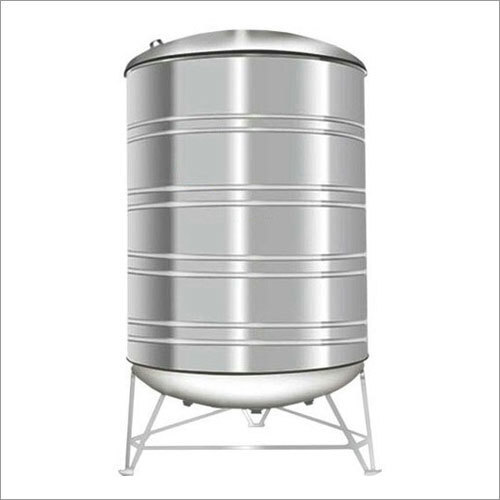
Why Stainless Steel is the Gold Standard for Truck Water Tanks
The material composition of your water tank directly impacts its performance and lifespan. Stainless steel earns its reputation through a unique combination of properties that other materials simply can’t match.
Stainless steel contains a minimum of 10.5% chromium, which reacts with oxygen to form an invisible, protective layer of chromium oxide on the surface. This passive layer is self-repairing—if the surface is scratched or damaged, it automatically reforms when exposed to oxygen, providing continuous protection against rust and corrosion. This inherent quality makes stainless steel water tanks exceptionally resistant to the elements, chemicals, and varying water compositions they encounter during truck operations.
According to a study published by the National Association of Corrosion Engineers, stainless steel demonstrates “significantly lower corrosion rates compared to coated carbon steels or aluminum alloys in diverse environmental conditions.” This scientific backing confirms what truck operators observe in the field: stainless steel maintains its integrity where other materials deteriorate.
Durability That Withstands the Toughest Conditions
Truck-mounted equipment faces constant vibration, impact risk, and extreme temperature fluctuations. Stainless steel water tanks are engineered to thrive in these challenging conditions.
The structural strength of stainless steel allows for thinner tank walls without compromising durability, resulting in lighter weight tanks that still withstand internal pressure and external impacts. Unlike plastic tanks that can become brittle in freezing temperatures or warp under intense heat, stainless steel maintains its structural integrity across a wide temperature range from -60°F to 800°F (-51°C to 427°C).
Mike Robertson, a heavy equipment specialist with over 20 years of field experience, explains: “I’ve seen polyethylene tanks crack after a few seasons of vibration and UV exposure. The stainless steel tanks on our fleet typically outlast the trucks themselves. We have units with over 15 years of service showing minimal wear.”
Superior Corrosion Resistance for Long-Term Value
Corrosion is the primary enemy of metal water tanks, but stainless steel offers multiple levels of protection that extend service life significantly.
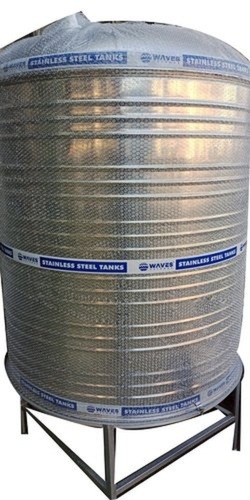
Different grades of stainless steel provide varying levels of corrosion resistance. For most truck water tank applications, 304 stainless steel offers excellent protection against freshwater corrosion. For trucks operating in coastal areas or those carrying more aggressive water types (such as brackish water or water with high mineral content), 316 stainless steel with added molybdenum provides enhanced resistance to pitting and crevice corrosion.
The American Society of Testing and Materials conducted accelerated corrosion testing on various tank materials and found that “properly manufactured stainless steel specimens showed no significant corrosion after 5,000 hours of salt spray exposure,” far outperforming galvanized steel alternatives.
Comparing Stainless Steel to Alternative Tank Materials
Understanding how stainless steel stacks up against other common tank materials helps clarify why it’s worth the investment.
| Material | Lifespan | Corrosion Resistance | Impact Resistance | Weight Considerations | Maintenance Requirements |
|---|---|---|---|---|---|
| Stainless Steel | 15-25+ years | Excellent | High | Moderate | Low |
| Polyethylene | 5-10 years | Good | Medium (becomes brittle with age) | Lightest | Low |
| Fiberglass | 10-15 years | Good (but can blister) | Low to Medium | Light | Periodic recoating needed |
| Galvanized Steel | 7-12 years | Fair (zinc coating wears) | High | Heavy | High (regular inspection) |
As this comparison shows, while stainless steel may have a higher initial cost, its extended lifespan and lower maintenance requirements often make it the most cost-effective choice over the long term.
Key Considerations When Selecting Your Stainless Steel Water Tank
Not all stainless steel water tanks are created equal. Several factors determine how well a tank will perform in your specific application.
- Grade Selection: Choose between 304 stainless for standard applications and 316 stainless for more corrosive environments.
- Construction Quality: Look for continuously welded seams rather than spot welding for maximum strength and leak prevention.
- Baffle Design: Internal baffles reduce water sloshing, which improves vehicle stability and reduces stress on the tank structure.
- Mounting System: Ensure the tank comes with appropriate mounting hardware designed for truck installation.
- Accessories: Consider included or available accessories like inspection ports, level gauges, and appropriate outlet valves.
Maintenance Practices to Maximize Your Investment
While stainless steel requires less maintenance than alternatives, proper care extends its already impressive lifespan.
Regular visual inspections should check for sediment buildup, surface contamination, and any signs of damage. Cleaning with mild detergent and soft cloths preserves the protective oxide layer, while avoiding abrasive cleaners or steel wool prevents surface damage that could compromise corrosion resistance.
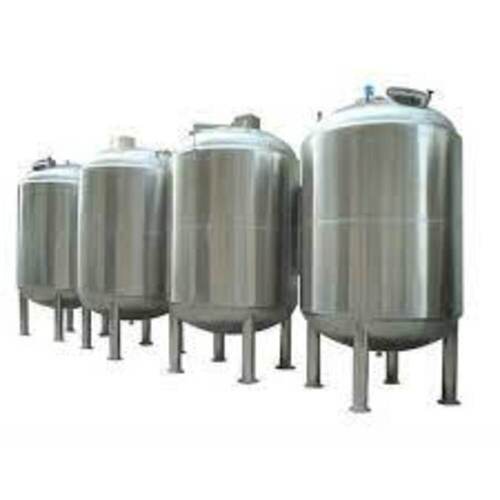
For trucks operating in harsh environments, an annual professional inspection can identify potential issues before they become major problems. This proactive approach aligns with findings from the Fluid Handling Institute, which reports that “preventive maintenance programs for stainless steel tanks can extend service life by up to 40% compared to reactive maintenance approaches.”
Real-World Applications and Case Studies
Stainless steel water tanks serve critical functions across numerous truck applications:
- Dust Control: Mining and construction operations rely on stainless steel tanks to suppress dust without corrosion from mineral-rich water.
- Agricultural Operations: Farmers use these tanks to transport water for livestock and crops, benefiting from the material’s resistance to agricultural chemicals.
- Emergency Response: Fire and rescue vehicles depend on stainless steel tanks for reliable water storage in critical situations.
- Mobile Cleaning: Pressure washing businesses value stainless steel’s resistance to cleaning chemicals and detergents.
A case study from a Midwest trucking company demonstrated the long-term value of stainless steel investment. After switching their fleet of 25 water trucks from polyethylene to stainless steel tanks, they reported a 65% reduction in tank replacement costs over an eight-year period, despite the higher initial investment.
Answers to Common Questions About Stainless Steel Water Tanks
Are stainless steel water tanks worth the higher initial cost?
Absolutely. While stainless steel tanks typically cost 20-40% more initially than polyethylene alternatives, their extended lifespan (often 2-3 times longer) and minimal maintenance requirements make them more cost-effective over time. The reduced risk of failure and associated downtime provides additional value for commercial operations.
Can stainless steel water tanks handle freezing temperatures?
Yes, stainless steel performs excellently in freezing conditions. The material itself remains ductile and strong well below freezing points. However, like any water tank, proper winterization is still necessary to prevent ice damage from expansion. Installing insulation and heating elements when operating in consistently freezing conditions is recommended.
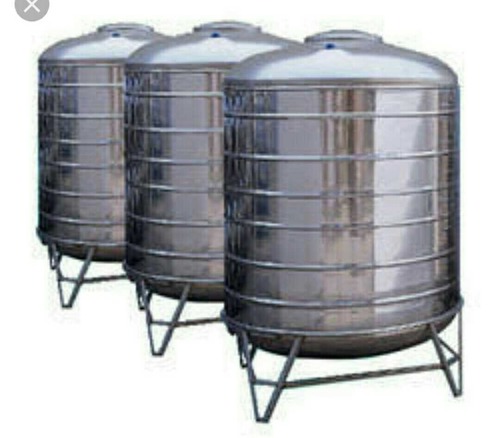
How do I prevent scaling and mineral buildup in my stainless steel tank?
Regular cleaning is the most effective prevention. For areas with hard water, using a water softener or installing a descaler system can significantly reduce mineral accumulation. Annual inspection and cleaning with appropriate food-grade acid solutions (like citric acid) will maintain optimal performance without damaging the stainless steel surface.
What’s the typical warranty on stainless steel water tanks for trucks?
Reputable manufacturers typically offer 10-15 year warranties on stainless steel water tanks, significantly longer than the 3-5 year warranties common for polyethylene tanks. These extended warranties reflect the manufacturer’s confidence in the material’s long-term performance and durability.
Can stainless steel tanks be repaired if damaged?
Yes, one significant advantage of stainless steel is its repairability. Unlike plastic tanks that often require complete replacement after damage, stainless steel tanks can typically be welded and repaired by qualified technicians, extending their service life even further after impact or accident damage.
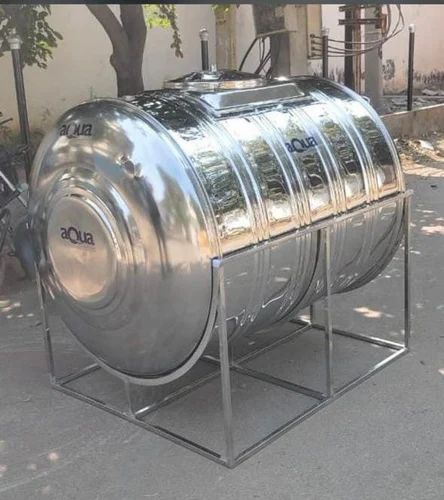
Making the Right Choice for Your Operation
Selecting the appropriate water tank for your truck involves balancing initial investment against long-term performance and reliability. For operators who prioritize durability, corrosion resistance, and minimal lifecycle costs, stainless steel water tanks represent the superior choice. Their ability to withstand harsh operating conditions while maintaining water quality makes them particularly valuable for commercial applications where downtime translates directly to lost revenue.
By understanding the properties, benefits, and proper maintenance requirements of stainless steel water tanks, you can make an informed decision that aligns with your operational needs and budget considerations. The evidence from both laboratory studies and real-world applications consistently demonstrates that stainless steel delivers unmatched performance for truck-mounted water storage solutions.









